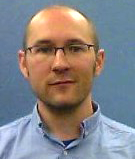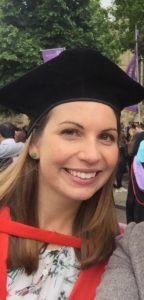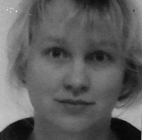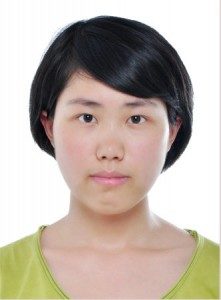Group Leader: Jon Marles-Wright
PhD Students: Imogen Garner, Kathleen Bialik, Finn Brady, Alaa Alshuwaier, Bayan Qadri
Alumni
Post-doctoral Research Associates: Cecilia Piergentili, Will Stanley
Research Associate: Kirsten Altenbach (2013 – 2016)
PhD students: Jasmine Bird (with Daniel Frankel, School of Engineering), Andrea Giachino (with Kevin Waldron ICaMB), Sema Ejder (with Rick Lewis, ICaMB), Efrain Zarazua-Arvizu (with Louise Horsfall, Edinburgh), Laura Tuck (with Janice Bramham, Edinburgh), Jenn Ross (with Dave Clarke in Edinburgh), Didi He (Graduated July 2017)
Undergraduate Project Students: Newcastle: Joao Martins Nunes (2017); Olivia Watson (2017); Max Scan (2017); Cat Scott (2017); Adam Crawshaw (2012); Laura Tuck (2011). Edinburgh: Zara Tebay (2016); Kingsley Tan (2016); Robert Berchtold (2015); Atanas Georgiev (2014); Ang-Thiau Fu (2013);
MSc Project Students: Newcastle: Zak McIver (2017); Michaela Chapman (2017); Edinburgh: Kelly Gallagher (2016); Gillian McFadden (2016); Xiao Lu (2015); Siran Zhou (2015); Miguel Cueva (2015); Vaselieos Papadogiannis (2014); Yadi Liu (2014).
Summer Students: Alison Pitts (2010, Ncl); Aritha Dornau (2013).
iGEM Teams: Newcastle 2017 (Instructor); Edinburgh Undergrad 2016 (Primary PI) (Bronze); Edinburgh Overgrad 2016 (Secondary PI) (Silver); Edinburgh 2015 (Primary PI) (Gold); Edinburgh 2014 (Instructor) (Gold).
Jon Marles-Wright
Position: Senior Lecturer in Microbial Biotechnology, School of Biology, Newcastle University
1998 – 2001: MA, Natural sciences (Biochemistry),King’s College, Cambridge University. Develop interest in structural biology from working on Heme proteins with a supervisor who previously worked with Max Perutz.
2001 – 2005: D. Phil., Structural biology, Oriel College, Oxford University. Doctoral work on structural immunology of TNF and T-Cell receptor/ligand interactions and structure based ligand design. Training in X-ray crystallography, structural genomics, protein/ligand interactions, and immunology.
2005 – 2010: Post-doctoral Research Associate, Structural Biology Laboratory, Newcastle University. Stress responses of Bacillus subtilis. Looking into the structural basis for the perception of environmental stress by a multi-protein signalling complex. Training in electron microscopy, biophysical analysis, and microbiology. Other projects on Gram-positive cell-wall biosynthesis, carbohydrate degradation, bacterial RNA synthesis, and barnacle settlement cues.
2010 – 2012: Faculty Research Fellowship, Newcastle University. Metabolic compartmentalisation in Clostridium difficile. First steps to independence. Building on my interests in multi-protein complexes in bacteria, their role in disease, and their potential uses as platforms in synthetic biology and biotechnology. Developing interest in open science and public engagement, become STEM Ambassador.
Summer 2012: Paternity break. Birth of Isobel.
2012 – 2016: Chancellor’s Fellow, Edinburgh University. Understanding the molecular architecture of metabolic compartments in bacteria. Development of research initiated during Faculty Research Fellowship, exploring potential of synthetic biology. Further training in electron microscopy methods. Greater engagement with open science.
2016 – present: Senior Lecturer, School of Biology, Newcastle University.
 Cecilia Piergentili
Cecilia Piergentili
Position: Postdoctoral Research Associate
Funding: BBSRC responsive mode award: Understanding iron acquisition within a bacterial iron-megastore. School of Biology, Newcastle University.
2006-2009: Laurea Triennale in Chemistry, Universita’ degli Studi di Parma (Italy). Graduated with a thesis on the synthesis and characterization of inorganic self-assembled supramolecules known as metallacrowns. Under the supervision of Dr Matteo Tegoni, I investigated metallacrowns stability in the presence of competing ligands and managed study of core metal substitutions performed by UV-visible titrations. Develop skills in metallacrown synthesis and stability tests.
2009-2011: Laurea Magistrale in Chemistry, Universita’ degli Studi di Parma (Italy). Specialization in Inorganic Chemistry. During the last year project, I worked in Prof Giorgio Pelosi’s and Prof Franco Bisceglie’s group studying the anticancer activity of a series of compounds based on thiosemicarbazone complexes of copper and nickel. Develop skills in metal complexes synthesis and characterisation (IR,1H-NMR, EA, MS).
2011-2016: PhD, Durham University. PhD student at the School of Biological and Biomedical Sciences under the supervision of Prof Nigel Robinson and Dr Ehmke Pohl. My PhD work focussed on dissecting how levels of transition metals are selectively balanced and managed by regulatory proteins within a bacterial system. I investigated factors determining selective responses of DNA-binding metal-sensors, including analysis of the formaldehyde sensor FrmR. Training in protein characterisation including UV-Visible/fluorescence spectroscopy, metalloprotein-chelator competition experiments, DNA-binding assays, and gel-filtration chromatography.
2015-2016: Research Technician, Durham University. The project aimed to assist in the analysis of metal contents of biological samples by inductively coupled plasma mass spectrometry (ICP-MS) in a collaborative project entitled: ”Unravelling and engineering the role of trace metals on recombinant therapeutic protein synthesis and heterogeneity from Chinese hamster ovary cells” in collaboration with the University of Kent and Lonza. Develop new skills in ICP-MS analysis on biological samples.
2016-present, Research Associate, Newcastle University. I am currently working in Dr Jon Marles-Wright’s group. The BBSRC project will investigate how the structure of encapsulated ferritin enzymes relates to their function within the encapsulin iron-megastores. Develop new skills in characterisation of protein structure (X-ray crystallography, EM, MS).
 Sema Ejder
Sema Ejder
Position: PhD student, Institute for Cell and Molecular Biosciences; Newcastle University
Funding: PATHSENSE Marie Curie Innovative Training Network
Biography:To achieve my goal of being a Scientist, I’ve started my student career with a 2 years of technical degree in Biology engineering at the Technical University of Colmar in France. Then I had the opportunity to go abroad in Edinburgh, to complete my studies with a Biomedical Sciences Bachelor degree at Napier University. I’ve pursued my studies with the Pathophysiological Master degree at Strasbourg University in France. After completing the first year, I had the opportunity to go to the United States where I’ve taken Genetic class at Stanford University in California. Devel
oping this subject lead me to pursue my studies towards the Structural Biology and Bioinformatics Master degree that I’ve did at Strasbourg University in France.
And actually, I am finally completing my student career with a PhD at Newcastle University. My PhD project is based on the structural study of the Listeria Monocytogenes stressosome complex to elucidate its sensory activity. This PhD project is a part of the Pathsense network (http://www.pathsense.eu) and it is funded by the Marie Curie Foundation.
 Andrea Giachino
Andrea Giachino
Position: PhD student, in cooperation with Kevin Waldron’s lab, Newcastle University – Institute for Cell and Molecular Biosciences (ICaMB).
Research interests: industrial microbiology, computational modelling.
Funding: Self-funded.
2017-present: Biosciences PhD, Newcastle University. My project focuses on investigating transition metal-regulatory pathways in industrially-relevant Bacteria, specifically how the metal response affects the phenotype and productivity of bacterial strains expressing heterologous proteins. I am also interested in defining optimised growth conditions for a variety of metal-related industrial processes. In addition to Dr Jon Marles-Wright, who oversees the molecular biology section of the project, my work is co-supervised by Dr Kevin Waldron (Institute for Cell and Molecular Biosciences), who has a long-standing expertise in studying metal ions in biological systems.
2013-2016: BSc in Biomolecular Sciences and Technology, University of Trento. I took advantage of the broad range of study and research opportunities in the University of Trento to consolidate my early career with a well-defined portfolio. Among the top 5 universities in Italy (source: CENSIS), the University of Trento provided me with a comprehensive curriculum in Microbiology and Biotechnology. I further expanded my portfolio by spending a six-month study period in the Universität zu Lübeck in 2015, with the aim of advancing my knowledge of Biochemistry and Biophysics. In 2016, I also took part in a paid internship in Sandoz Industrial Products S.p.A. (a Novartis Division) to consolidate my expertise of microbiolgy-related industrial processes. Finally, I completed my formation with a bioinformatics dissertation, co-supervised by Dr Nicola Segata and Dr Ozan Kahramanoğullari, in which I developed a computational model of stochastic, single-molecule dynamics of eukaryotic actin polymers.
Efrain Zarazua-Arvizu
Position: PhD student, Institute of Quantitative Biology, Biochemistry and Biotechnology; University of Edinburgh.
Funding: IBioIC/Conacyt
2006 – 2010: BSc., Biotechnology School of Chemistry, Autonomous University of Querétaro (Mexico). Where I discovered some penchant for scientific research and development, as well as understood the significance of technology transfer strategies. Developed also some entrepreneurship skills by participating and obtaining the 4th place in the national competition “Entrepreneurs ANUIES-SEP-2011 SE” with the project “Biofunctional-organic food”, Mexico City. And finalist in the Latin-American competition “Intel Challenge” with the business project “Biotechnological Innovation INNOB”.
2014 – 2015: MSc., Synthetic Biology and Biotechnology, School of Biological Science, The University of Edinburgh. Focused in the understanding of inducible genetic responses of cells triggered by mechanical compression, beneath the supervision of Dr. Naomi Nakayama in the Biological Form & Functional Lab, Institute of Molecular Plant Sciences.
2015-present: PhD., Molecular and Structural Biology, Institute of Quantitative Biology, Biochemistry and Biotechnology, The University of Edinburgh. Interested in the usage of Synthetic Biology tools to develop modular systems based in bacterial micro-compartments to explore its potential to produce high value compounds and scaffolds for industrial biotechnology and nano-technology.
Laura Tuck
Position: PhD student, Institute of Quantitative Biology, Biochemistry and Biotechnology; University of Edinburgh.
Funding: BBSRC EastBio
2008-2011, BSc., Medical Microbiology & Immunology, Newcastle University. Developed interest in structural and cell biology techniques, particularly during third year project which involved crystallization trials and pull-down assays.
2011-2012, Microbiology Lab Technician, Bioinnovel, Sunderland. Responsible for all aspects of E. coli work including recombination, shake flask trials and fermentation runs for a Bio-process Technology Development Company.
2012-2013, Operations Technician, Geneius Labs, Newcastle Upon Tyne. Responsible for identification of various pathogenic species in food and water samples through DNA extraction and PCR analysis as well as traditional Microbiology Testing methods, to UKAS standards.
2013-Present, PhD Student, Institute of Structural and Molecular Biology, University of Edinburgh. Use structural biology, biochemistry and cell biology techniques to understand the function of Bacterial Microcompartments (BMCs) and how they can be manipulated in a synthetic biology context. Interested in determination of basis for the recruitment and encapsulation of proteins within BMCs, and the processes that occur within these compartments.
Alumni
 Kirsten Altenbach
Kirsten Altenbach
Position: Research Associate 2013 – 2016
1997-2004, Biology Diploma, Westfälische-Wilhelms-Universität Münster Developed interest in live cell imaging techniques including FRET- Microscopy and FLIM. Research for Diploma project “Analysis of calcium signalling in filamentous fungi using a recombinant cameleon probe” carried out at the University of Edinburgh under supervision of Prof ND Read.
2004-2010, PhD, University of Edinburgh. Phd student at the School of Chemistry and Fungal Cell Biology Group working on “Development and Analysis of recombinant fluorescent probes for live cell imaging of filamentous fungi” under supervision of Dr AC Jones and Prof ND Read. Collaboration with Dr Mojca Bencina and Dr Tanja Bagar at the National Institute of Chemistry, Slovenia analysing a novel pH-sensor and developing new FRET constructs for expression in Aspergillus niger.
2010-2013, Maternity Break.
2013-2016, Research Associate, Institute of Structural and Molecular Biology, University of Edinburgh. Develop new skills in structural and synthetic biology, provide technical support to the group and explore ways of using my experience in different microscopy techniques to study the structure and role of BMCs.
Didi He 
Position: PhD student 2013 – 2016, Institute of Quantitative Biology, Biochemistry and Biotechnology University of Edinburgh.
Funding: China Scholarships Council.
2006 – 2010, BSc., Biological Science, School of Biological Science, Anhui Agricultural University. Develop interest in microbial physiology with the thesis title “Physiological characterisation of chlorpyrifos-degrading bacteria”.
2010 – 2013, MSc., Microbiology, State Key Laboratory of Microbial Technology, School of Biological Science, Shandong University. Focus on factors influencing lignocelluloses degradation and cellulase production under the supervision of Professor Xu Fang. Training in microbial molecular and fermentation techniques.
2013 – 2016, PhD student, Institute of Structural and Molecular Biology, College of Science and Engineering, Edinburgh University. Engage in shell protein assembly and metabolism encapsulated in bacterial microcompartments. Training in characterisation of protein structure and interaction with 3D-proteomics and electronic microscopy. Have interest in synthetic biology, biological education and management.

Pingback: Help, I’m a Scientist! | Marles-Wright Laboratory
Pingback: 100 words